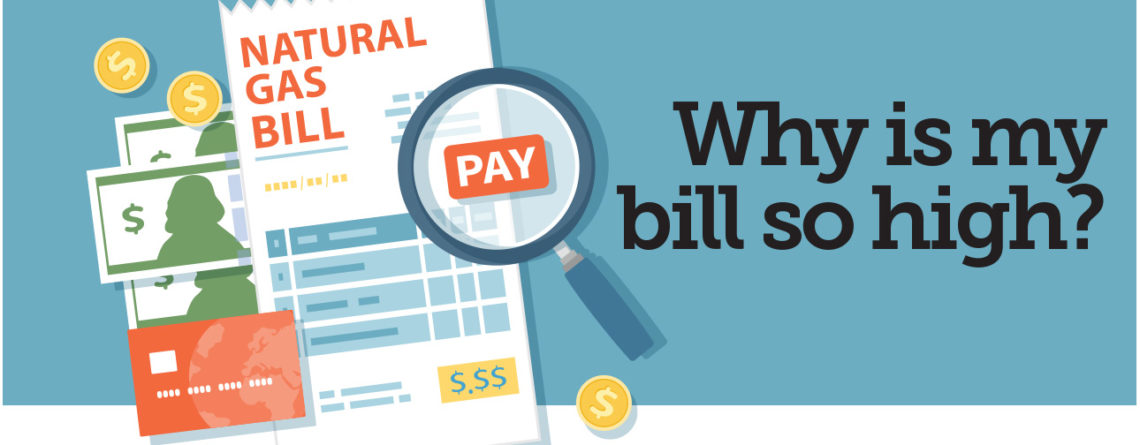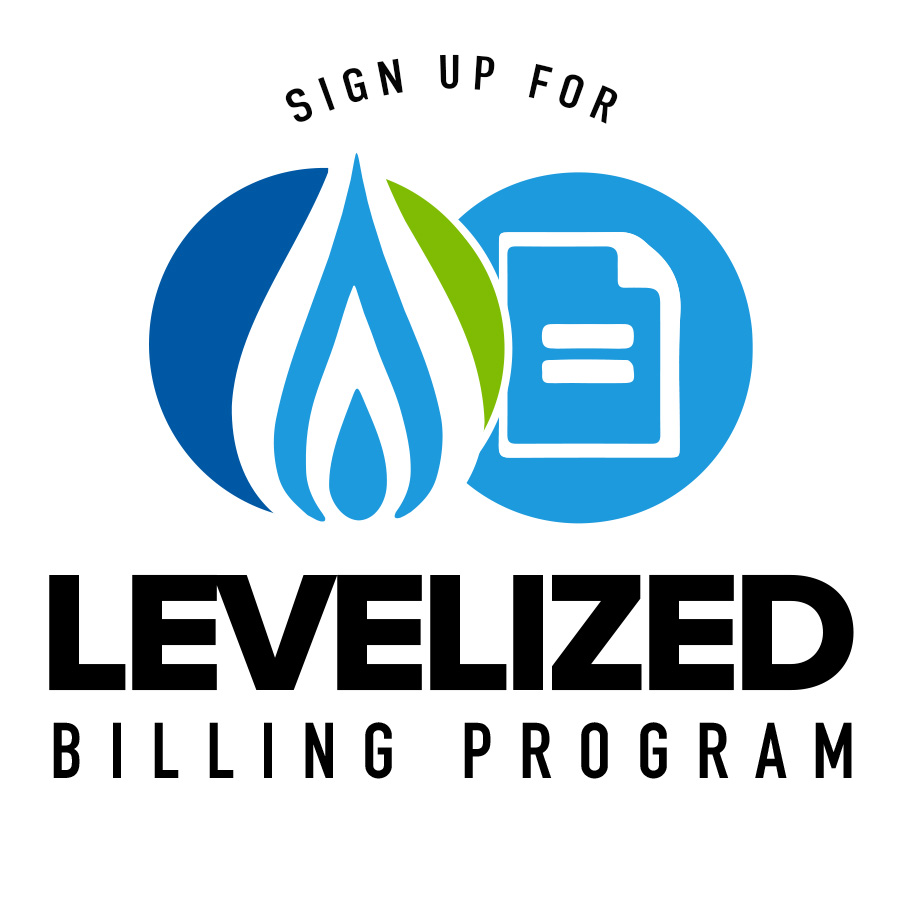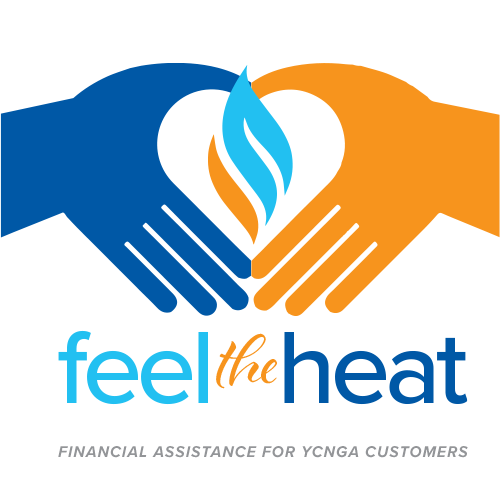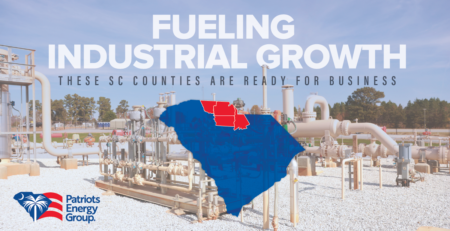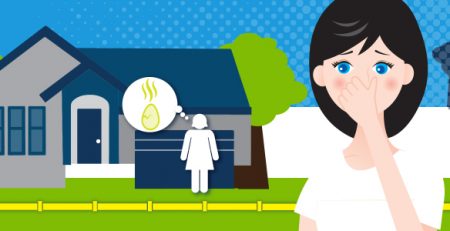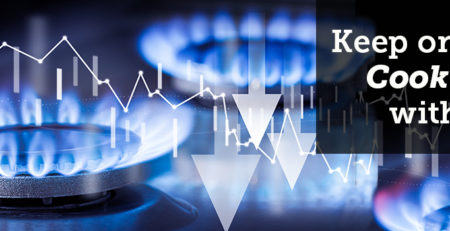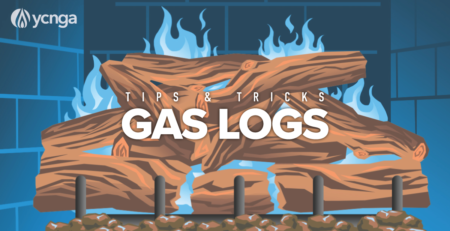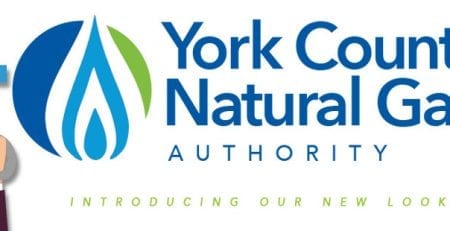Winter 2023 Gas Rates
Cold Snap & Energy Prices Create the Perfect Storm
Higher energy prices and record cold temperatures have led to noticeably higher natural gas bills for many this winter. Fortunately for Authority customers, natural gas rates have remained among the lowest in the Carolinas, but the return of cold weather has increased demand. High usage is the main culprit for high bills.
It all starts with energy prices. Since 2020 natural gas prices have been on the upswing. Market prices doubled in 2021 and continued to increase in 2022.
How does YCNGA work to maintain stable and low rates? As a public utility, the Authority has local control and works diligently using sound management decisions involving hedging practices, capacity release and long-term prepaid gas agreements.
How much have these practices saved ratepayers over the 2022 calendar year? see more
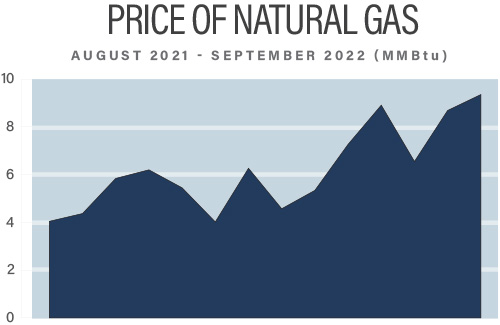
In August, 2022, the price of natural gas on the New York Mercantile Exchange (NYMEX) closed at $8.69 per MMBtu, in comparison to August of 2020 when it closed at $1.85 – an increase of nearly 370% over the 2-year period.
Why Are Energy Costs Rising?
It’s all about energy policies and supply. We addressed these issues in our Fall 2022 customer newsletter.
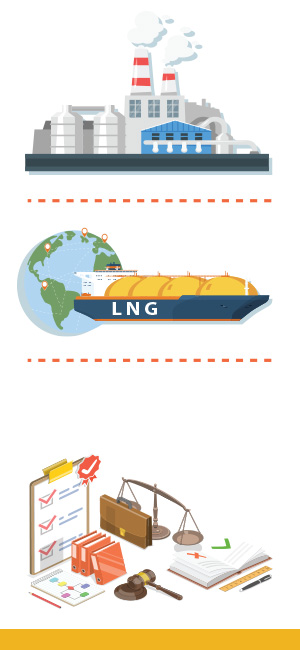
- World events like Russia’s invasion of Ukraine interrupted energy markets worldwide. In response to overseas demand, the U.S. has been increasing exports of LNG which tightens our supply.
- The main source of power generation (for electricity) is natural gas. Now, regardless of the season, natural gas is in high demand, lowering the reserves.
- The current economy and worries of a recession triggered uncertainty and an unwillingness to invest in more infrastructure projects.
- Energy demands continue to increase in an effort to support industry, manufacturing, power generation and both residential and commercial consumers.
- Pipeline capacity is limited and current federal policies stand in the way of infrastructure projects creating unnecessary shortages in supplies. Natural gas is a domestic and abundant energy source.

Cold weather is the main factor that influences a customer’s bill.
Since natural gas is typically used for heating, record cold and record usage will mean higher utility bills. Only a few days of extremely cold temperatures can cause your bill to be higher because your heating system runs more frequently and for longer periods of time.
- Over the Christmas holidays (Dec. 23-26) YCNGA customers experienced 4 straight days of morning temperatures under 15°. This is the longest stretch of temperatures below 15° since 1985. The average temperature for December 2022 was 51.6 (high) and 34.0 (low).
- In comparison, December 2021 was the 2nd warmest December since 1940, with average highs of 64.7 and lows of 41.7.
- How cold was December 2022? 88% colder than December 2021 and 27% colder than the 10-year average.
- During these 4 days, gas usage in York County broke 3 of the top 4 all-time throughput records. The previous record for gas usage was set in January of 2018 at 70,666 Dth*. The new record set on December 24, was measured at 79,233 Dth*, exceeding the old record by 12%.
- The bill you received in January may also be higher because of a longer billing cycle. Due to the holidays, some billing periods were longer than the usual period of approximately 28-32 days.
- The month of January was warmer than average, so customer usage should be lower than December resulting in lower bills.
- Thermostats set above 68 degrees result in much higher gas bills. Your heating system works to level the temperature in your home, so with lower temperatures outside, your heating system runs more often trying to keep up. Energy.gov recommends setting the thermostat to 68° to save money, then lowering the thermostat when leaving home or at night while sleeping.
*Dth = Dekatherm. One dekatherm of natural gas contains one million BTU (one MMBTU) of energy. One dekatherm is equal to 10 therms.
YCNGA – Q&A
No! Our price of $1.13 (rate 10) and $1.18 (rate 20) has not increased since the rate was established in September, 2022.
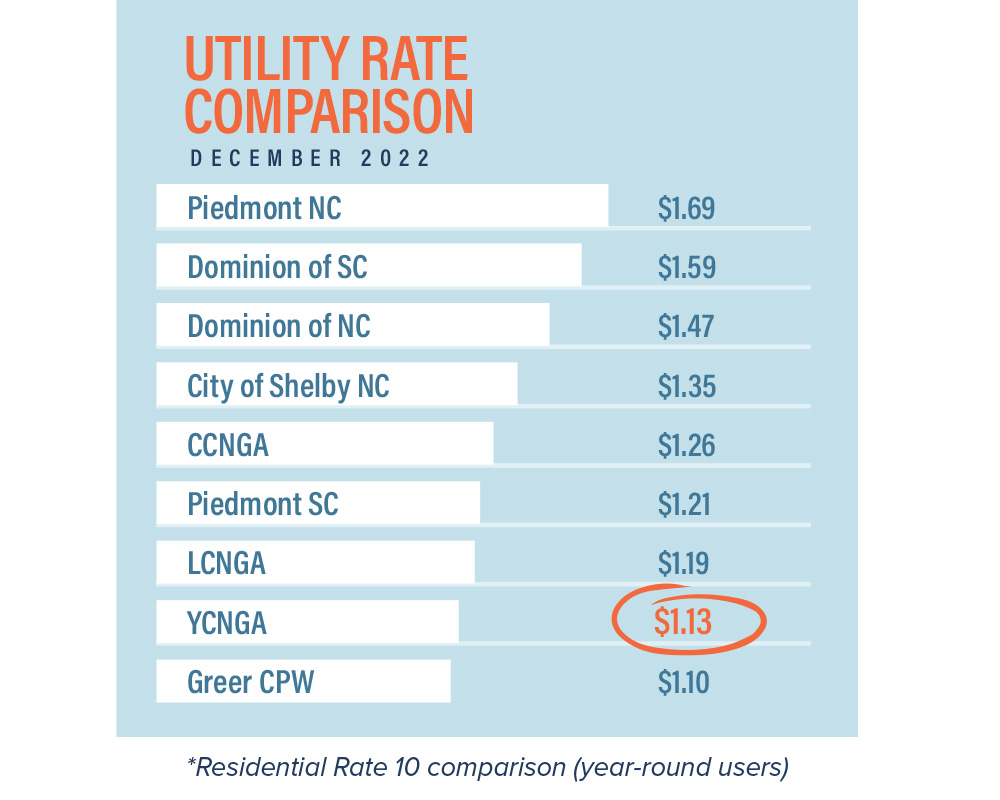
Rates are made up of the physical commodity cost of natural gas, the cost to transport the gas, and the local cost to safely operate the gas system. See rates
Below is a breakdown of YCNGA’s Rate 10 (year-round usage) over the past 6 years:
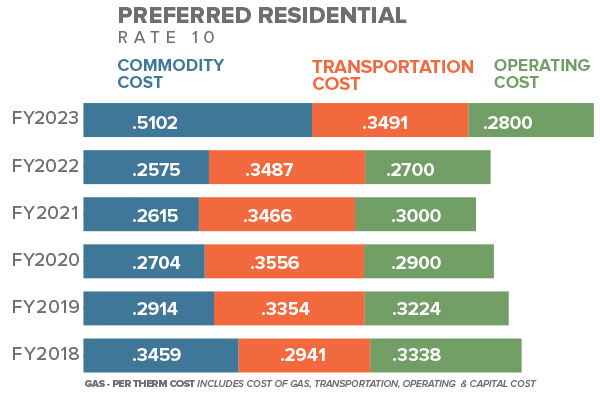
The Authority, individually and as a member of the Patriots Energy Group (PEG)*, uses sound management decisions involving hedging practices, capacity release and long-term prepaid gas agreements to establish stable and reasonable rates for its customers, despite the instability of the energy markets. Read more about the Tools of the Trade on patriotsenergy.com.
During calendar year 2022, the Authority’s efforts to purchase gas (through hedging and prepayment agreements), and release capacity when suitable, resulted in gas cost savings to customers over $14.8 million.
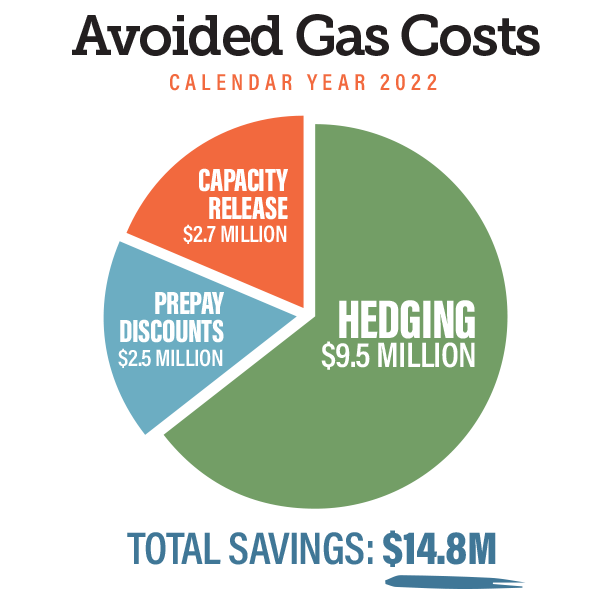
Yes! YCNGA is a public gas utility established in 1954 and operates as a not-for-profit corporation, governed by a ten-member Board of Directors. The Authority has no taxing authority and operates solely based on revenues generated from the sale of natural gas. Decisions affecting rate payers are made locally. As a public utility, the Authority is able to focus on operating and expanding the system, and not on profits.

There is no reason natural gas prices should be inflated to their current levels. Reach out to your State and U.S. Representatives and express your concern over policies that limit natural gas production and expansion of the pipeline network.
How to be more energy efficient in the winter and reduce your bill
Do you set your thermostat at a specific temperature and never touch it? You could be wasting as much as $180/year, according to ENERGY STAR. You can easily save energy in the winter by setting the thermostat to 68°F while you’re awake and setting it lower while you’re asleep or away from home.
Reduce the thermostat temperature setting whenever you leave your home for 8 hours or longer. After all, there’s no need to heat an empty house to the same temperature as when you’re home, right? If you’re heating the house for your pets, remember they have fur coats!
Do this:
- When your home will be empty for 8 hours or longer, set the thermostat 7°-10° lower in the winter.
- When you get home, set the thermostat back to a comfortable setting – 68° is recommended.
Doing so can save as much as 10% on yearly energy costs, according to the U.S. Department of Energy.
ENERGY SAVING TIPS: 
Install a PROGRAMMABLE THERMOSTAT and set it properly
CLOSE VENTS and doors to unused areas
DRESS IN LAYERS
CHECK WINDOWS AND DOORS for gaps – use towels or blankets to block gaps
KEEP BLANKETS HANDY
OPEN CURTAINS to rooms facing the sun, but CLOSE THEM when the sun goes down
FIND AND STOP DRAFTS from coming through electrical outlets, holes in exterior walls, and from doors and windows.
ADD INSULATION to your existing home. Insulating your entire home with foam insulation can make your home warmer and more comfortable while saving you money on natural gas bills. Insulating the entire home – attic, walls, crawl space, and rim joist – is recommended as every area works together as a system. Only insulating the walls will not help with cold floors, just like insulating your attic won’t help with cold walls.
Check your HVAC FILTERS MONTHLY and change them when dirty, or according to manufacturer guidelines.
CHECK YOUR DUCT WORK for leaks or tears and repair fallen or crushed ducts.
Find more tips from energy.gov
Billing Options – Levelized Billing Program
The best way to avoid being surprised by a high natural gas bill is to enroll in our Levelized Billing Program. With this method of budget billing, your natural gas costs stay the same each month for a year. If you’re eligible, we will average your 12 previous monthly bills and estimate the charges for the next 12 months, then divide your predicted energy use into 11 equal monthly payments. On the 12th month we compare the estimated usage to the actual usage and then apply a credit due, or bill the outstanding balance.
Instead of big natural gas bills in the winter, you can spread those expenses across the whole year and be much friendlier to your budget. The Equalized Billing Program is open for enrollment during the month of May. Mark your calendars, and sign up this year!
Payment Assistance
Need assistance with your bill?
We recognize that high heating bills impose a hardship, especially for elderly or disabled customers on a fixed income. Heating assistance is available through our Feel the Heat Fund. The Feel the Heat Fund is funded by customers and employees who donate directly to the fund by adding a dollar or more each month to their bill payment. Donations are collected by YCNGA and distributed by partner agencies. We’ve recently expanded the program to help more in need. If you or someone you know may qualify for assistance, contact a partner agency to apply. Learn more…
The Good News!
Although it’s cold in S.C. and you’re using more energy, know that you’re not alone. According to the U.S. Department of Energy, nearly half of all households use natural gas to heat their homes. The good news – natural gas still costs less to use than other major home energy sources! Gas rates in York County have stayed relatively stable for several years and the Authority works hard to provide affordable energy for all customers.


